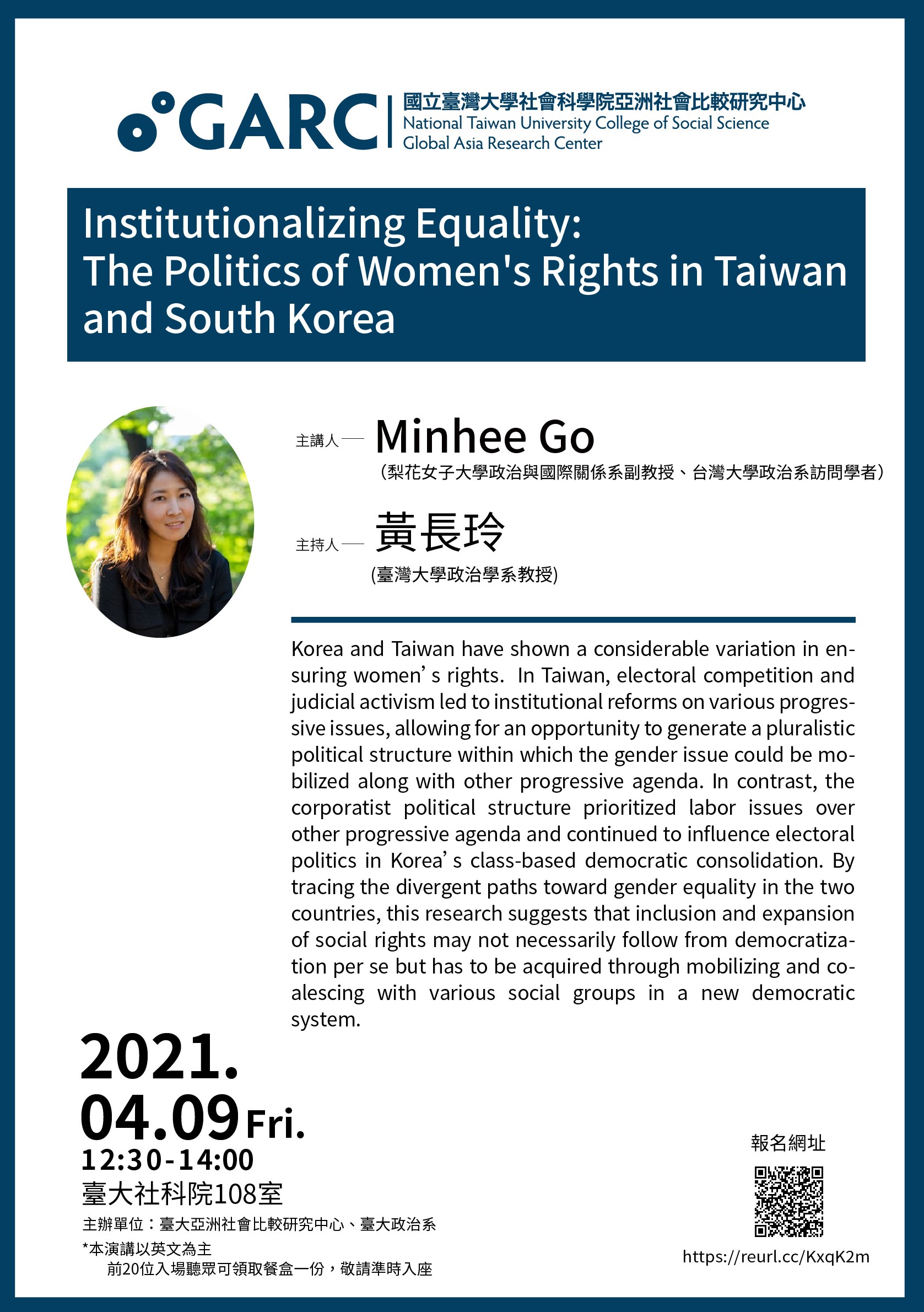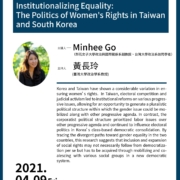Institutionalizing Equality: The Politics of Women’s Rights in Taiwan and South Korea
Korea and Taiwan have shown a considerable variation in ensuring women’s rights. In Taiwan, electoral competition and judicial activism led to institutional reforms on various progressive issues, allowing for an opportunity to generate a pluralistic political structure within which the gender issue could be mobilized along with other progressive agenda. In contrast, the corporatist political structure prioritized labor issues over other progressive agenda and continued to influence electoral politics in Korea’s class-based democratic consolidation. By tracing the divergent paths toward gender equality in the two countries, this research suggests that inclusion and expansion of social rights may not necessarily follow from democratization per se but has to be acquired through mobilizing and coalescing with various social groups in a new democratic system.




